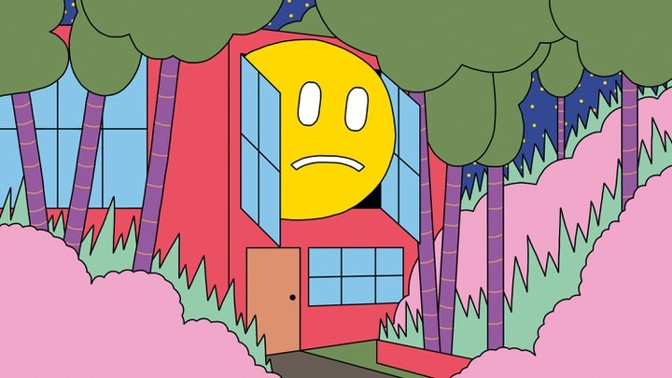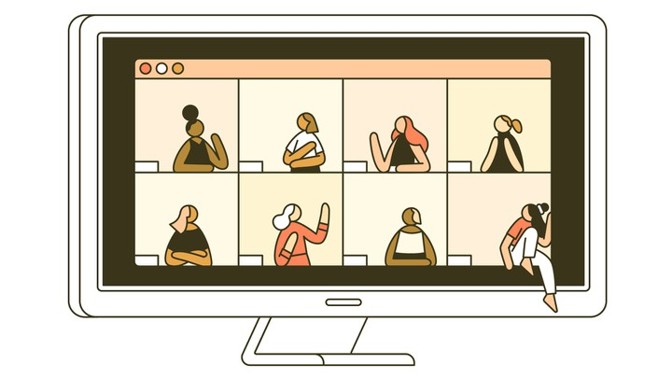Every weekday evening, our editors guide you through the biggest stories of the day, help you discover new ideas, and surprise you with moments of delight. Subscribe to get this delivered to your inbox.
Life is scary and weird. First, our columnist offers a three-step remedy for negative thoughts. Then, we’ll zoom in on, er, Zoom, and why our new digital social lives can feel unsatisfying.

Two errors our minds make when trying to grasp the pandemic
In this week’s column, Arthur Brooks, who teaches happiness at Harvard Business School, looks at two negative-thinking traps—and how to avoid them.
“Ruminating over what might have been and what might happen will reliably deliver unhappiness,” he explains. “If you practice eliminating these mental errors during the pandemic, you’ll be happier today, and better equipped to deal with the hard parts of ordinary life, whenever it resumes.” Read on.

Our New Social Lives
If you’ve felt awkward on a video call recently, know that you’re not alone. We’re all being a little weird online right now.
My colleague Ashley Fetters argued earlier this month that we need to stop trying to replicate our old lives on the web—and that Zoom happy hours may only leave us unsatisfied. Instead, we should focus on creating more fulfilling forms of digital connection.
Consider the past few weeks just the first iteration of our new, strange social lives. In the coming months, we’ll work out the bugs and find ways to create joy and community, together.
Below, some observations from this period of social experimentation:
People are already developing new white lies to sign off of videochats. “This new, locked-down era calls for more creativity in coming up with a good reason to say bye,” Joe Pinsker, our staff writer who covers family, observes.
Exes are using the pandemic as an excuse to slide back into your DMs. “Some seem to be fighting off boredom, loneliness, or a growing awareness of their own mortality,” Ashley reports. “Others seem to be coming from a place of genuine care.”
The class of 2020 tried to replicate prom on the web. It was sad but sweet, our technology writer Kaitlyn Tiffany reports.

One question, answered: Do I really need to wear a mask whenever I’m around people?
The Centers for Disease Control and Prevention recommends that Americans wear masks outside the home primarily to protect the community, not themselves. A simple cotton mask might not stop much from coming in, but it can stop up to 99 percent of particles from exiting into the air.
Countries that have universally committed to wearing masks have seen clear drops in their infection numbers. In the United States, wearing masks for the public good could effectively halt the virus: Models suggest that if just 80 percent of the population protects those around them, the rate at which the coronavirus spreads could plummet to a stop.
What to read if … you just want practical advice:
Tonight’s Atlantic-approved quarantine activity:
Feel like you’ve exhausted your binge-watching list and mastered your cooking goals? Try getting a free Ivy League education (kind of). Harvard is offering some humanities courses at no cost—perfect for the “casual, curious dilettante,” as our critic puts it. They require a time commitment of only a few hours a week, and may get you started on a new passion for classical music or history.
View all of our stories related to the coronavirus outbreak here. Let us know if you have specific questions about the virus—or if you have a personal experience you’d like to share with us.
This email was written by Caroline Mimbs Nyce, with help from Haley Weiss and Isabel Fattal, and edited by Michael Owen. Sign yourself up for The Daily here
from The Atlantic https://ift.tt/3bAq8em


No comments: